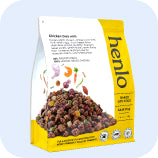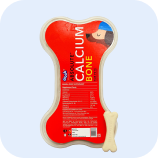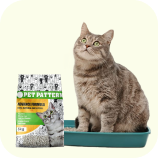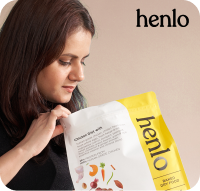In 24 cities
Help us ensure a smooth delivery
SIZE GUIDE
Resolve Dog Health Issues: Prevent and Cure Blood in Stool

Furlicks Gut Health Supplement for Cats and Dogs

Vivaldis Entero Chronic Pre & Probiotics Gut Health Powder for Dogs and Cats

Venkys Gutwell Pre & Probiotics Gut Health Powder for Dogs and Cats

Furlicks Gut Health Supplement and Drools Real Chicken Sausage Treats Combo for Dogs

Furlicks Gut Health Supplement and Drools Absolute Salmon Oil Syrup Supplement Combo for Dogs

Dr Goel's Cystigo for Dogs and Cats (30ml)

Dr Goel's Wormisule XP for Dogs and Cats (30ml)

Dr Goel's Diabosyz Jumbo Kit for Dogs and Cats

Corsie Pregamyl Boost Syrup for Dogs and Cats

Savavet Advamun Immunity Booster Syrup for Dogs & Cats (200ml)

Vetrina Immuncare Syrup for Dogs and Cats (200ml)

Vivaldis Viusid Immunity Booster for Pets

Natural Remedies Natlife Energy & Immunity Supplement Paste for Dogs and Cats

Vetrina Immuncare Drops for Dogs and Cats (30ml)

Dr Goel's Me & My Immunity Supplements for Dogs and Cats

Vivaldis Impromune Tablets for Dogs and Cats

Dr Goel's Me & My Mobility Supplements for Dogs and Cats

Dog Pooping Blood: Understanding the Causes and Solutions
Discovering that your dog is pooping blood can be a concerning and alarming experience. However, it's important to understand that there can be various reasons behind this symptom. In this article, we will explore the different causes of dog pooping blood and provide you with valuable information to help you address this issue.
Common Causes of Dog Pooping Blood
When it comes to dog pooping blood, there are several potential causes that pet owners should be aware of:
- Parasites: Intestinal parasites such as worms can cause blood in your dog's stool. Regular deworming is essential to prevent and treat this issue.
- Dietary Issues: Certain foods or dietary changes can lead to digestive problems and result in blood in the stool. It's important to provide a balanced and appropriate diet for your dog.
- Infections: Infections in the gastrointestinal tract can cause inflammation and bleeding, leading to blood in the stool. Prompt veterinary attention is necessary to diagnose and treat these infections.
- Inflammatory Bowel Disease: This chronic condition can cause inflammation and ulcers in the digestive tract, resulting in bloody stools. A veterinarian can provide guidance on managing this condition.
Choosing the Right Products for Dog Pooping Blood
When it comes to addressing dog pooping blood, there are several products available in the market that can help improve your dog's gut health:
- Furlicks Gut Health Supplement for Cats and Dogs
- Petvit Pre & Probiotics Gut Health Powder for Dogs and Cats
- Venkys Gutwell Pre & Probiotics Gut Health Powder for Dogs and Cats
- Vivaldis Entero Chronic Pre & Probiotics Gut Health Powder for Dogs and Cats
- Furlicks Gut Health Supplement and Drools Real Chicken Sausage Treats Combo for Dogs
- Dr Goel's Neuromate for Dogs and Cats (30ml)
- Vetina Fecal Deterrent Tablet for Dogs (30 tablets)
- Furlicks Gut Health Supplement and Drools Absolute Salmon Oil Syrup Supplement Combo for Dogs
- Vetrina Immuncare Drops for Dogs and Cats (30ml)
- Vivaldis Viusid Immunity Booster for Pets
- Neo Kumfurt Imu Lat Syrup for Dogs and Cats
- Natural Remedies Natlife Energy & Immunity Supplement Paste for Dogs and Cats
- Himalaya Immunol Supplement for Dogs and Cats
- Vetrina Immuncare Syrup for Dogs and Cats (200ml)
- Savavet Advamun Immunity Booster Syrup for Dogs & Cats (200ml)
Occasions and Settings for Dog Pooping Blood
While dog pooping blood is not an ideal situation, it's important to address the issue promptly. Whether you are at home, on a walk, or traveling with your dog, it's crucial to monitor their stool for any signs of blood. Seeking veterinary advice is recommended to determine the underlying cause and appropriate treatment.
Care Tips for Dog Pooping Blood
If your dog is pooping blood, here are some care tips to consider:
- Consult a Veterinarian: It's essential to seek professional advice to diagnose the cause of blood in your dog's stool and receive appropriate treatment.
- Maintain a Healthy Diet: Providing a balanced and nutritious diet can help improve your dog's gut health and reduce the chances of blood in their stool.
- Regular Deworming: Parasites can be a common cause of blood in the stool. Regular deworming can help prevent and treat this issue.
- Follow Veterinary Recommendations: If your dog is diagnosed with a specific condition, follow your veterinarian's recommendations for managing the issue.
Conclusion:
Discovering blood in your dog's stool can be a cause for concern, but understanding the potential causes and seeking appropriate treatment is crucial. By choosing the right products and following proper care tips, you can help improve your dog's gut health and overall well-being. Remember to consult a veterinarian for personalized advice and guidance.



 Golden Retriever
Golden Retriever
 German Shepherd
German Shepherd
 Labrador
Labrador
 Rottweiler
Rottweiler
 Beagle
Beagle
 Preventive Care
Preventive Care
 System wise
System wise
 Supplements
Supplements





























































































































































